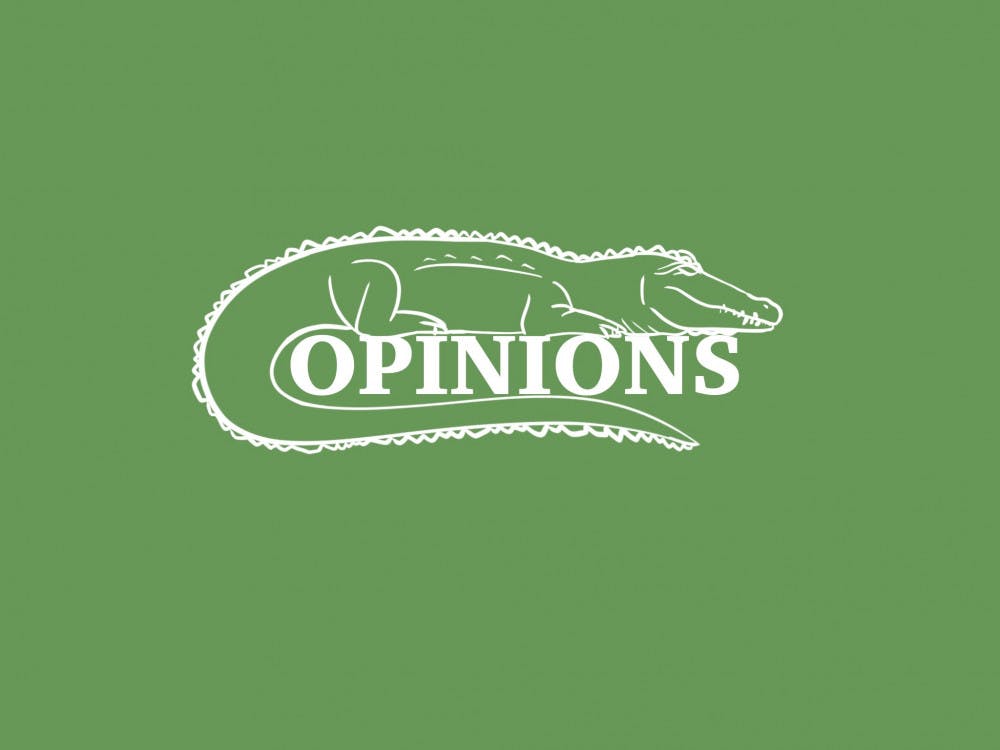On June 18, UF President Kent Fuchs sent the UF community an email titled “Another step toward positive change against racism,” in which he specified a plan to combat the presence of racism on campus. However, the email failed to give a timeline to rectify many campus issues, such as racist and homophobic building names, the permittance of white supremacist speakers on campus and the utilization of prison food-provider Aramark.
So we decided to research the true decision-makers behind these policies.
Many assume that our university president is the prime decision-maker of our institution’s policy — his signature is all over the place — but what if he is not?
Perhaps the most influential authority is a group that few know about. A group that “sets policy,” “holds the institution’s resources in trust,” “is responsible for [resources’] efficient and effective use” and, most importantly, “serves as the institution’s legal owner and final authority.” At the UF, that group is known as the Board of Trustees.
“Everything that the board does directly or indirectly affects students one way or another. Even if they don’t realize it,” said Steve Orlando, UF’s assistant vice president for communications, to The Alligator this past summer.
The Board of Trustees consists of 13 members. Florida statutes outline the selection process: Six of the trustees are appointed by the governor of Florida, and another five are chosen by the Florida Board of Governors (BOG), which serves as the governing body for the State University System of Florida. These 11 trustees are subject to confirmation by the Florida Senate. The 12th trustee is the chair of the Faculty Senate, and the 13th is the president of the student body.
Eleven of the trustees are white, and 11 are male, with the two people of color being men and the two women being white. Professionally, six of the trustees have worked as business managers or CEOs, four come from the law field and two are in the medical profession.
The Board of Trustees exhibits cultural, racial, occupational, gender and political homogeneity. Under the current system, it is impossible to ensure that the trustees will ever descriptively and substantively represent our university’s population.
According to public Federal Election Commission (FEC) filings, all but two of the trustees have made donations to conservative funds, Political Action Committees (PACs) or individuals since 2015.
The Board’s one noncontributor is student body president Trevor Pope, and its one trustee who has exclusively donated to liberals is Faculty Senate chair Sylvain Doré. Pope and Doré were elected by either students or faculty senators, making them the only democratically elected individuals on the board.
All other Board of Trustee members, who were appointed by the governor and BOG, have made conservative political contributions.
Since 2015, trustees have donated a combined total of about $350,000 to Sen. Rick Scott and hundreds of thousands more to other individuals and groups such as state Republican parties, Florida Gov. Ron DeSantis, Senate Majority Leader Mitch McConnell and many others.
In this election cycle, trustees have donated a total of $235,610 to President Donald Trump through Trump Victory, Donald J. Trump for President Inc. and the America First Action Super PAC.
For comparison, the median household income in Gainesville is $36,389 a year.
Like everyone in America, the trustees have a constitutional right to their personal political affiliations. The concerning aspect is rather the all-encompassing homogeneity of the Board of Trustees, and its impact on campus society. There are substantial implications for almost every aspect of how the university is run.
This becomes crucial when finances are pitted against student, faculty and employee well-being. Think about why we reopened campus during a pandemic, why racism and homophobia continue to be displayed proudly on our campus buildings, why UF contracts with prison food-provider Aramark and why we continue to invest in fossil fuels.
While Fuchs must be held accountable for university policies, so should the most powerful body on campus.
The UF administration is a mouthpiece, but the Board of Trustees is the systemic authority that has ultimately chosen to put profit over the safety and ethical concerns of students. It is imperative that a group with so much power over policy-making is a direct representation of the campus population.
In order to truly take steps toward positive change, UF must address and change the undemocratic systems that exist in our power structure, while actively amplifying the voices of those who are underrepresented in our communities.
Aysia Gilbert is a History and African American studies sophomore.
Andy Shodell is an English and Political Science sophomore.
Tamsyn Butler is a History and Economics sophomore.






